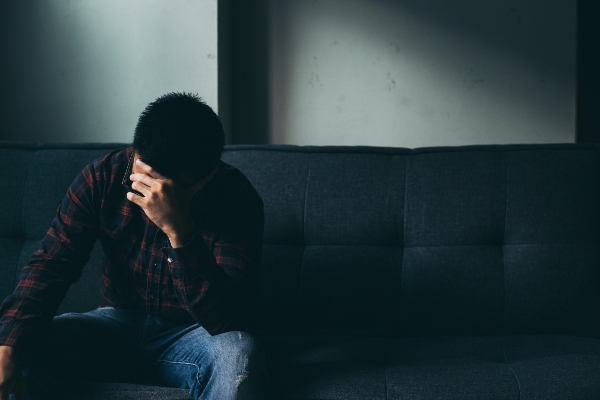 Depression treatment includes various medication and therapy options. Psychiatrists may prescribe medications such as mood stabilizers, antipsychotics, and anticonvulsants to treat depression. They may also recommend therapy, electroconvulsive therapy (ECT), or transcranial magnetic stimulation (TMS).
Depression treatment includes various medication and therapy options. Psychiatrists may prescribe medications such as mood stabilizers, antipsychotics, and anticonvulsants to treat depression. They may also recommend therapy, electroconvulsive therapy (ECT), or transcranial magnetic stimulation (TMS).
Antidepressant alternatives used for depression treatment
Let us take a look at some of the alternatives to antidepressants a psychiatrist might recommend:
1. Mood stabilizers
Depression is a mental illness that can devastate every aspect of a person's life. While many different treatment options are available, mood stabilizers are often prescribed for patients with depression or bipolar disorder.
In particular, mood stabilizers help treat patients who experience rapid mood swings or have difficulty regulating their emotions. While all drugs come with the risk of side effects, mood stabilizers are generally considered to be safe and well-tolerated.
2. Antipsychotics
Antipsychotics are a class of drugs typically used to treat psychosis, but they can also be effective in treating depression. In addition, research has shown that antipsychotics can help treat patients who have not responded well to other treatments, such as antidepressants.
While antipsychotics are generally considered safe, they can cause side effects, such as weight gain, drowsiness, and dry mouth.
3. Anticonvulsants
Anticonvulsants are a class of drugs typically used to treat seizure disorders, but they can also be effective in treating depression. Research suggests that anticonvulsants may be particularly helpful in treating patients with treatment-resistant depression.
As with any drug, there is the possibility of side effects, such as dizziness, drowsiness, and weight gain.
4. Electroconvulsive therapy (ECT)
ECT is a remedy for depression that involves passing an electric current through the brain to induce a seizure. ECT is effective in treating patients with severe depression who have not responded to other treatments.
While ECT is generally considered safe, it can cause side effects, such as confusion, disorientation, and headache.
5. Transcranial magnetic stimulation (TMS)
TMS is a treatment option for depression that uses magnetic fields to stimulate the brain. TMS has been found to be effective in treating patients with depression who have not responded to other treatments.
While TMS is generally considered safe, it can cause side effects, such as headaches and dizziness.
Depression is a major mental illness that requires treatment. If you are struggling with depression, talk to our psychiatrist about the best treatment options.
How long does it take for depression symptoms to improve?
Depression symptoms typically improve within a few weeks of starting treatment. However, it is essential to continue treatment even after symptoms have improved to prevent depression from returning.
If you are considering stopping treatment, talk to our psychiatrist about the best way to do so.
Abruptly discontinuing depression medication can cause withdrawal symptoms or make depression worse.
Get help for depression
Our psychiatrist can help you get past the symptoms of depression and restore your quality of life. Call or stop by our Myrtle Beach clinic to set up an appointment.
Here's how to reach us...
Request an appointment or call Future Psych Ketamine Clinics at 843-788-9718 for an appointment in our Myrtle Beach office.
Related Posts
Telemedicine is a critical tool in delivering mental health care. With the growing demand for accessible, prompt psychiatric services, telemedicine offers a practical and effective alternative to traditional in-person visits. This approach to psychiatric care improves access while fostering continuity of care for individuals dealing with a variety of mental health conditions.One of the most…
Chronic headaches can be debilitating, interfering with day-to-day activities, work, and quality of life. While occasional headaches are a common experience, persistent and frequent headaches may indicate an underlying condition that requires attention. Psychiatrists can assist patients in managing chronic headaches, particularly when stress, anxiety, depression, or other mental health factors contribute to the condition.…
In recent years, telemedicine has provided accessible healthcare to people nationwide, particularly in psychiatry and other mental health services. This approach to care makes mental health services more accessible and convenient for patients and medical professionals. Through telemedicine, psychiatrists can overcome traditional barriers to patient care while cultivating meaningful connections.One of the most significant benefits…
